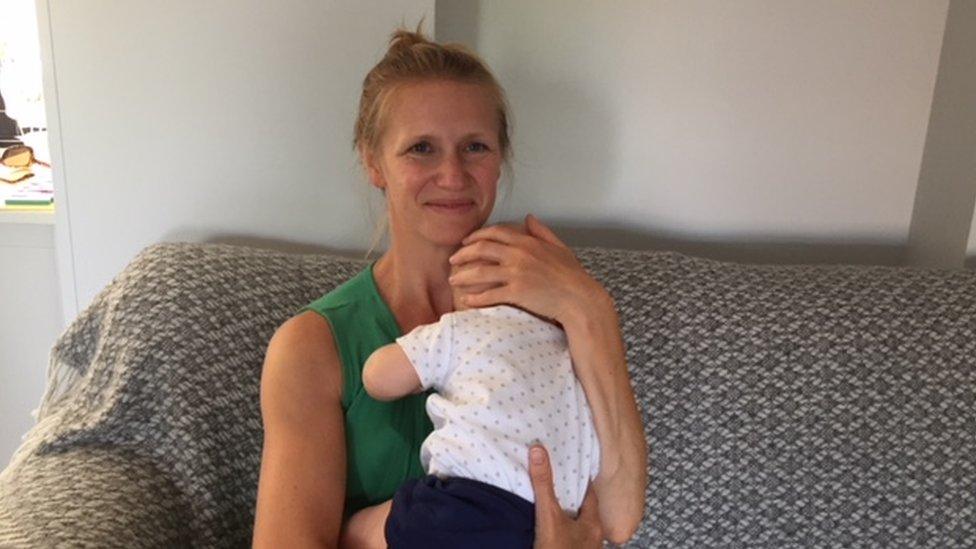Adoptions fall by 62% as IVF success rises
- Published
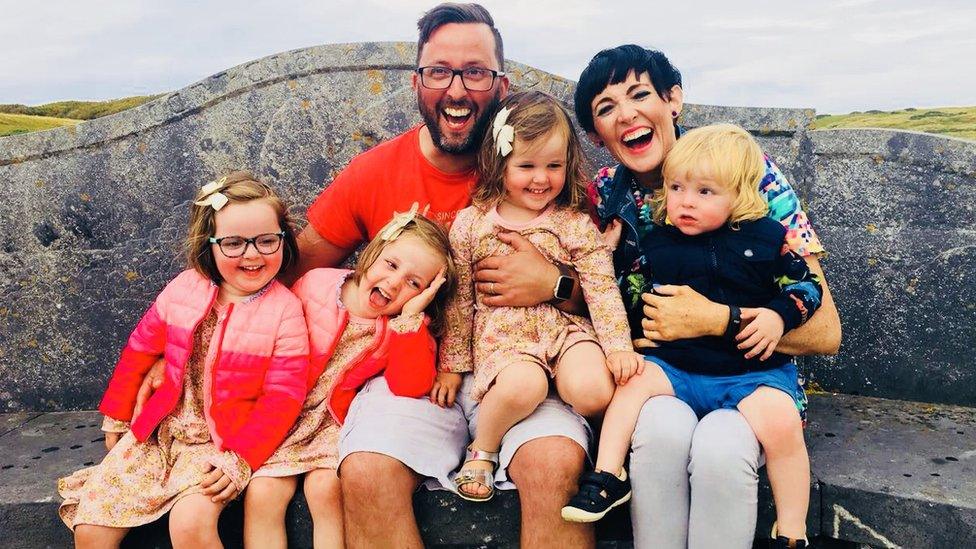
Heather with her husband and four children
Heather Bell persevered with IVF for almost five years before she had children.
"I thought about adopting all the time," she told BBC News, but she and her husband decided to pursue IVF.
The boss of a body that represents children in care has said the success of IVF has contributed to a drop in the number of children being adopted.
In the last 40 years since the first "test-tube baby" was born, adoptions in England and Wales have fallen by 62%.
Meanwhile, IVF success rates for women under 35 have nearly tripled.
When she decided against adoption, Heather, now 41, said she was shocked, embarrassed, disappointed and frustrated at her feelings around her decision.
But despite two miscarriages and two full cycles of IVF, she felt she wanted to try to have her biological children.
Eventually she gave birth to two daughters through IVF, and went on to have two more children naturally.
Even if she had not given birth, she said, she felt she might not have had the "emotional energy" to go through the adoption system.
It is that system that Anthony Douglas, head of the Children and Family Court Advisory and Support Service (Cafcass) has spoken about in an interview with the Daily Telegraph, external.
He says the adoption process in England is "far too slow". And it is having to compete with other ways of becoming a parent.
Mr Douglas, 69 - who was himself adopted - told the newspaper: "IVF used to be around 7% successful and now it's around 30%.
"So as a choice, adoption is competing with lots of other ways of having children."
He added: "Every child deserves a family to live and grow up in but adoption still takes twice as long as it should, which puts people off."
Two-year average wait
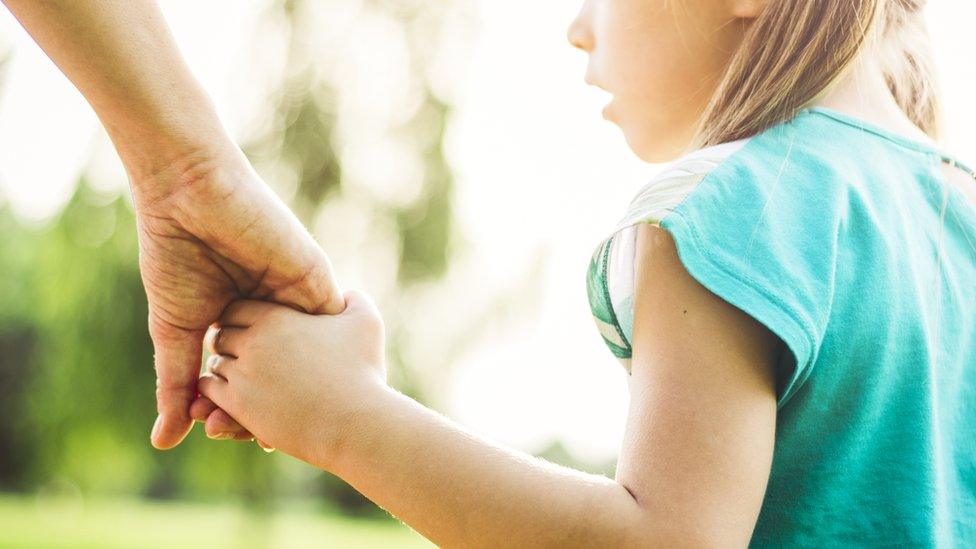
Data from the Office for National Statistics, external suggests there were 12,121 children adopted in England and Wales in 1978.
In 2017, 4,350 looked after children in England were adopted, government figures show., external While in Wales, more than 300 children, external were placed in their adoptive home.
But the falling number of adoptions is despite an increase in the number of children in care in England. There are 72,670 looked after children in England as of March 2017.
Earlier this month, the National Adoption Service put out a call for prospective parents in Wales to come forward to help, following an "unanticipated increase" in children looking for homes.
Meanwhile, Department of Education figures for England suggested the average duration between entry into care and being adopted decreased from 22 months in 2012-13 to 16 months in 2016-17, while the number of children waiting to be matched with a family dropped from 5,500 to 2,500 over the same period.
The department said the number of looked after children in England who were adopted was up from 3,100 in 2011, although numbers fell in 2016 and 2017.
A spokesperson said: "Every child deserves to have a loving, stable home that's right for them, and thousands of families have had their lives transformed by adoption.
"We have invested £90m in the Adoption Support Fund and we are setting up Regional Adoption Agencies to further improve the time it takes for the child to go to live with their new family."
What is IVF?
IVF - or in vitro fertilisation - is when an egg is removed from a woman's ovaries and fertilised with sperm in a laboratory. The fertilised egg is then returned to the woman's womb to develop.
It worked for the first time on 10 November 1977. On 25 July 1978, the world's first IVF baby, Louise Brown, was born
Louise Brown's 40th birthday has been marked by a new museum exhibition in London
On average, IVF fails 70% of the time and it takes almost four-and-a-half years to conceive using it.
The highest success rates are for women under 35 - one-third of treatment cycles are successful.
Guidelines say it should be offered to women until the age of 42. However last week it emerged that in 12 areas of England, women over 34 are being automatically refused IVF treatment on the NHS.
- Published11 September 2018
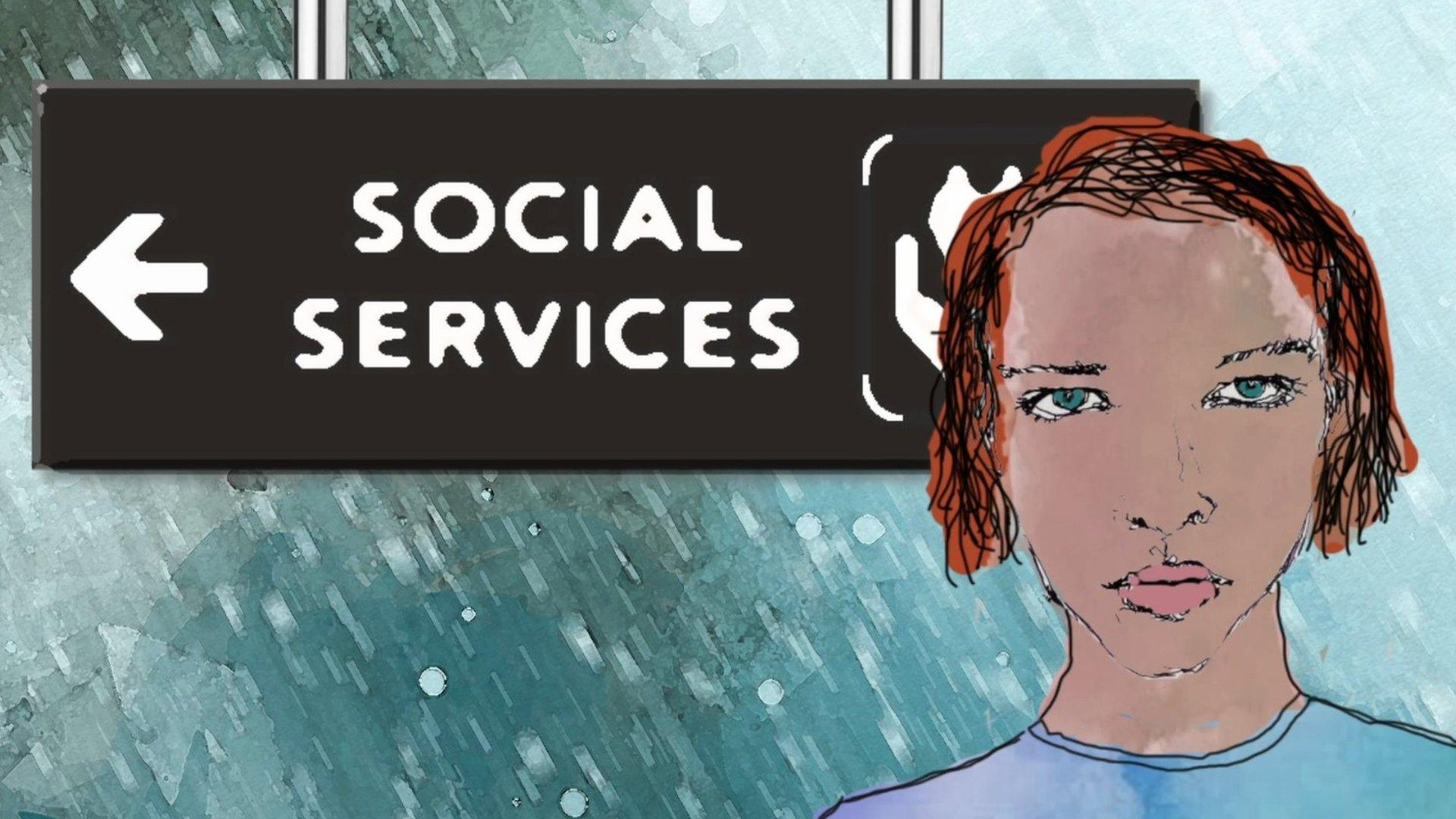
- Published15 October 2018
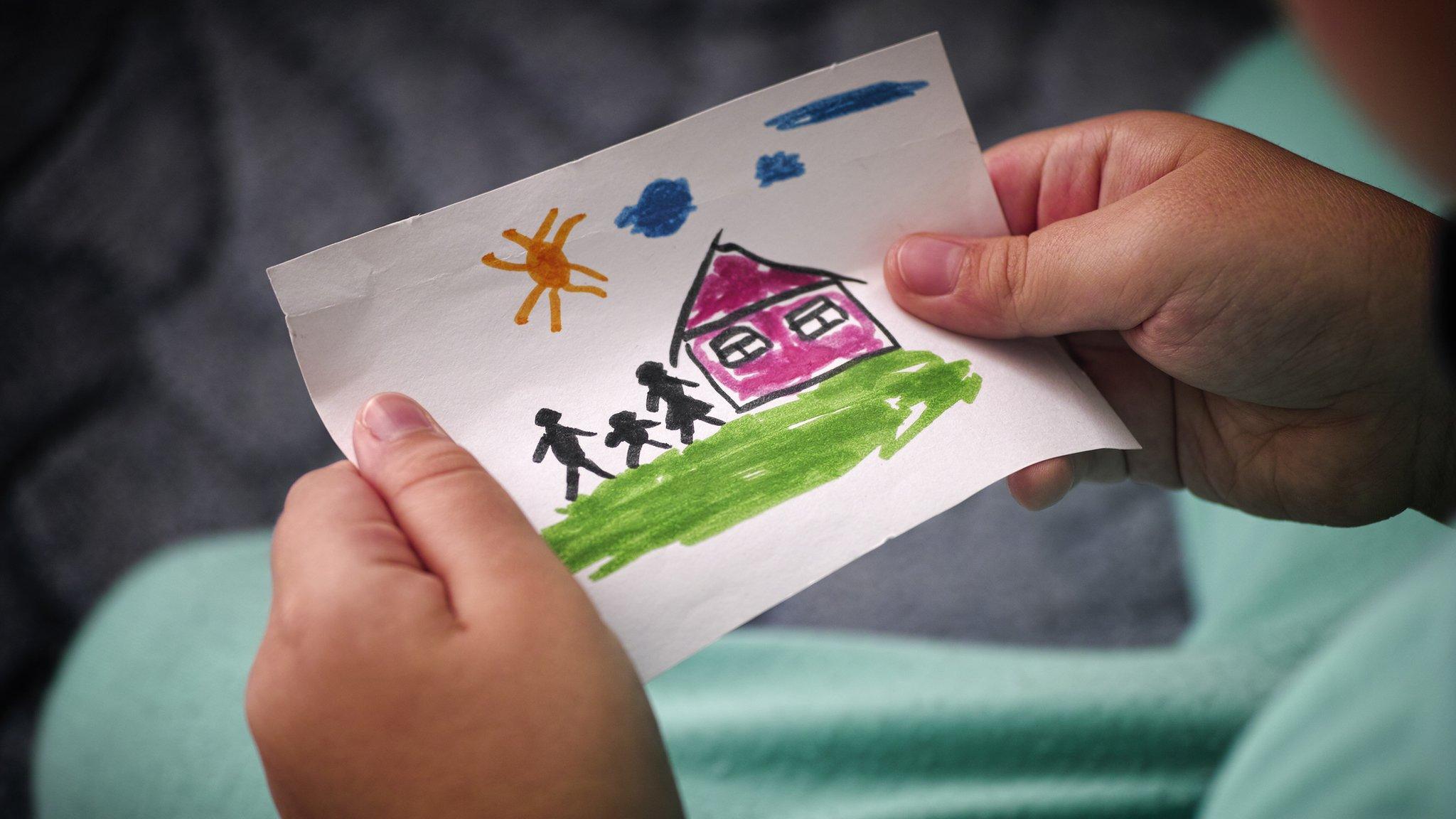
- Published10 May 2018
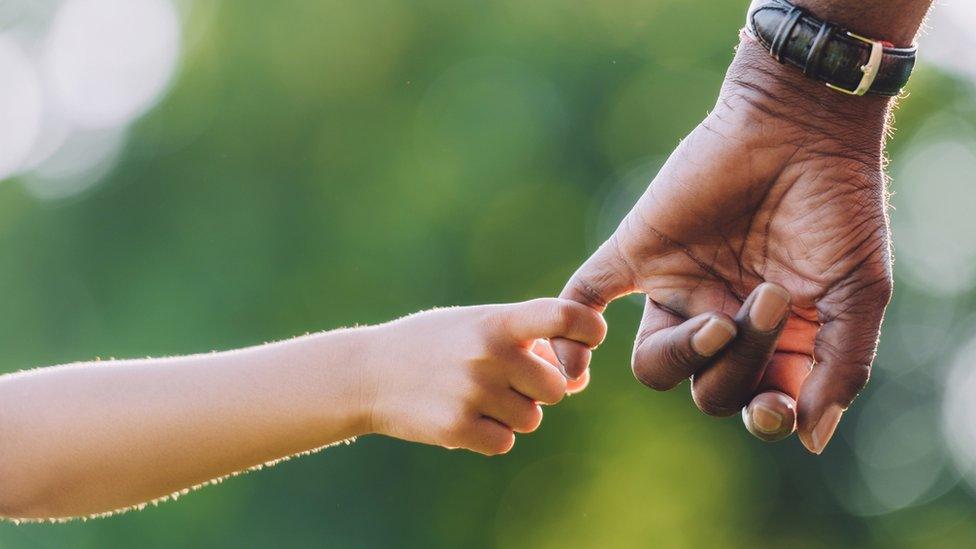
- Published21 October 2017
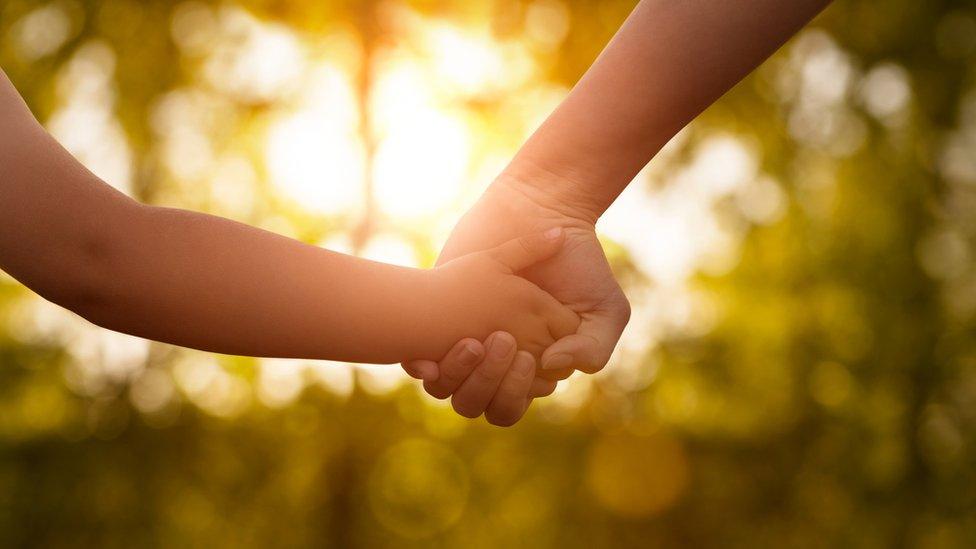
- Published5 March 2018
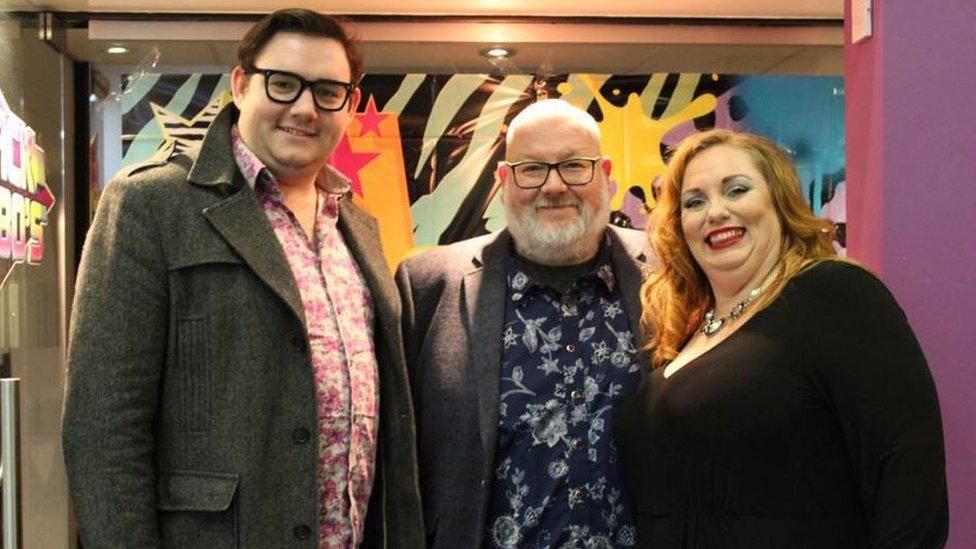
- Published12 August 2018
